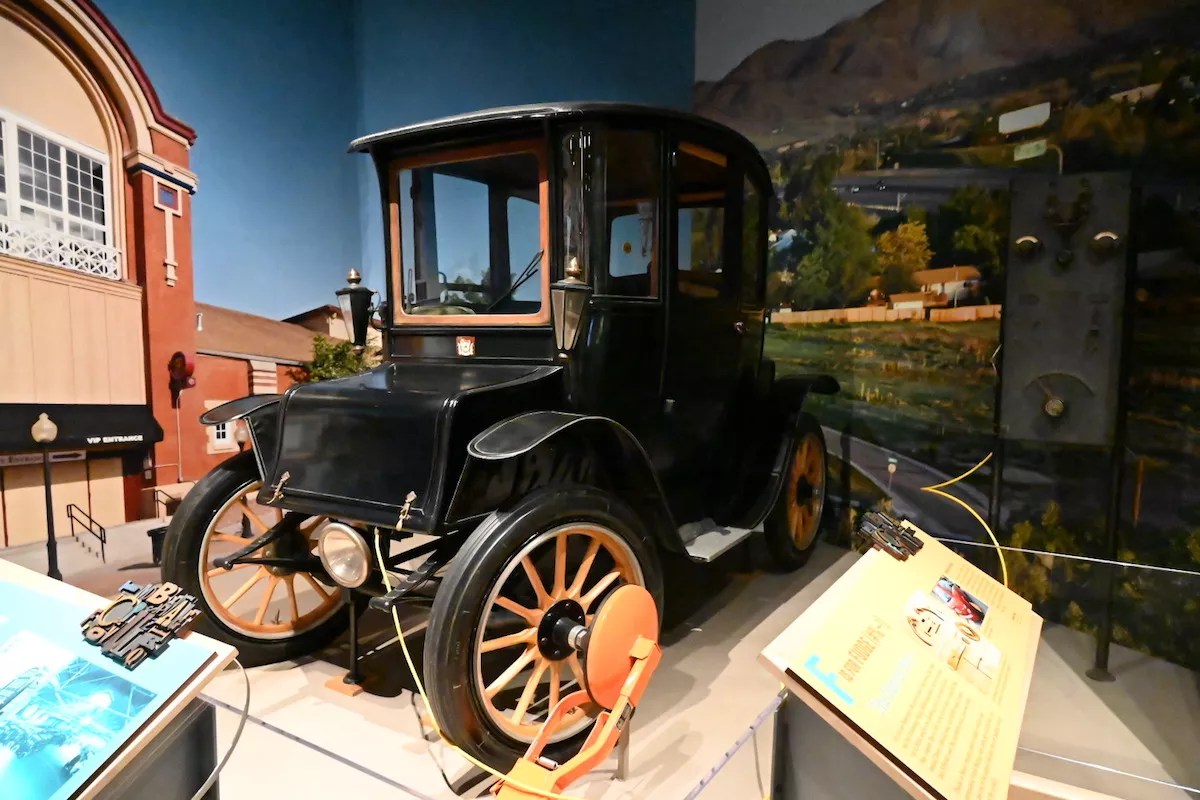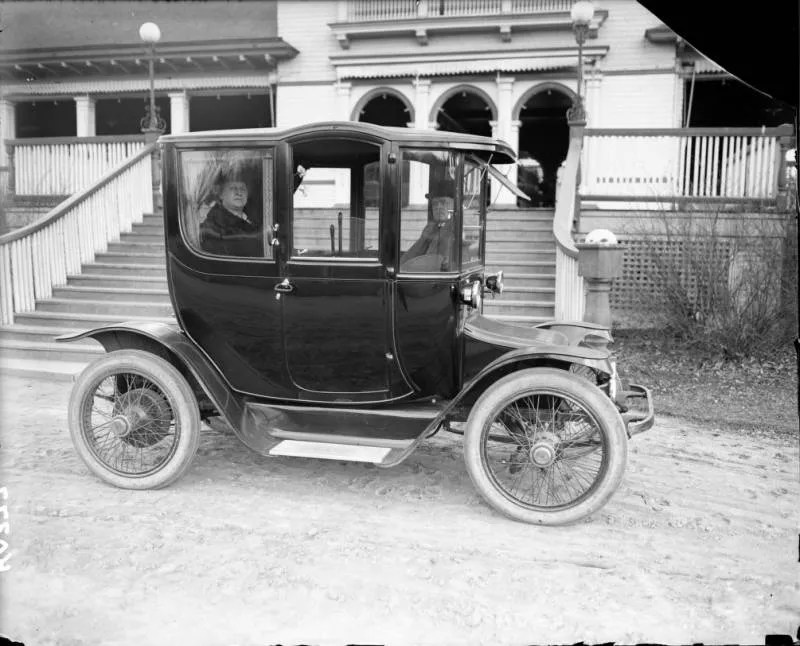
Bennito L. Kelty

Audio By Carbonatix
Back in 1902, before gasoline-powered cars were a thing, all eyes were on the electric vehicles displayed at the country’s first auto show, held in the Mile High City, which was already miles – and more than a century – ahead of the curve.
“The original Denver Auto Show was in 1902, and about half the cars were electric,” says Tim Jackson, former head of the Colorado Automobile Dealers Association. “The other half were steam-powered. None of them were gasoline-powered.”
Not only was this city the site of the country’s first car show, but it was the home of one of the earliest electric vehicle manufacturers in the country: Fritchle. Even as Nikola Tesla was doing his thing down in Colorado Springs, Oliver Fritchle started manufacturing the electricity-powered Fritchle in Denver.
At the 2023 Denver Auto Show this weekend, EVs are again front and center as the industry continues to explode in popularity and production. This year’s show features EVs made by major car brands, including Toyota, Ford, Chevrolet and Hyundai. A test drive is even available for the Toyota BZ4X, a new line of all-electric cars. Guests can also get firsthand looks at electric versions of iconic American cars, like the Ford Mustang and the Ford F-150 pickup truck.
Today, Colorado ranks fifth in electric cars per capita, according to Jackson, and it’s been in that position for about four or five years now.
The electric and steam car makers at that first auto show in 1902 were poised to see their creations become as common as gas vehicles are today – before Ford suddenly blew them away with the cheapness and convenience of its cars.
A remnant of what could have been is on display at the History Colorado Center: a black, boxy Fritchle Electric Colonial Coupe Model 283 created in 1914. It’s a reminder of how Denver was an EV hub in the early 1900s, with more than 500 electric cars manufactured here between 1905 and 1917.
Fritchle, an Ohio native with a chemistry degree, came to Frisco in 1899 to study smelting, but ended up finding his real passion in Denver – where his experience fixing up electric cars led him to design a 600-pound battery pack that could last 100 miles.

A Fritchle in action.
Denver Public Library
By the time Fritchle made his first electric car and showed it at the 1905 auto show, William Felker had already driven his Steam Locomobile up Pikes Peak in 1901, while also winning a race from Denver to Colorado Springs in the steam-powered whip in 1902.
Gas-powered cars were far from the norm for automobiles at the time, when 38 percent of cars built in the U.S. were powered by electricity and 40 percent powered by steam. Only 22 percent were gasoline-powered, according to History Colorado.
While gas-powered vehicles had a clear advantage for refueling as gas stations began opening, Denver was the only place in the early 1900s where recharging stations for electric cars were common, and those charging stations were largely built and maintained by Fritchle, according to the Denver Public Library.
When Fritchle opened his factory in 1908 at the spot that had held the first Denver Auto Show (today it’s the home of the Fillmore Auditorium), he promised that his cars could go 100 miles on a single charge – a bold statement at the time.
He set out to prove the durability of his 2,100-pound car that same year by driving from Nebraska to New York City.
After 26 days of traveling along the country’s muddy and unmarked roads, Fritchle arrived in New York with an odometer reading of 1,800 miles, having only had to change a single tire. He came back by rail – but not before visiting Washington, D.C., with plans to build a plant on the East Coast, too. The stunt worked, and orders came from across the country for the “One Hundred Mile Fritchle,” as it was called.
Nowadays, electric vehicles can go more than 300 miles on a single charge.
“What I’ve seen over my years when I was at the Colorado Auto Dealers Association, what I saw was the public was looking for a 300-mile range,” says Jackson. “I think that will continue…some new vehicles are coming with 320, 340, 360.”
To make matters even sweeter, the Fritchle was also able to climb steep mountainsides, thanks to the brute power and force of its battery.
Despite the Fritchle’s popularity, however, the competition from gas-powered cars became tougher. The Fritchl sold for almost seven times the cost of the competing Ford cars. EVs were ultimately seen as expensive and showy – not too far from their reputation today. But that, too, is changing.
“Some EVs have just now become affordable,” Jackson says. “At the Denver Auto Show, the Chevrolet Equinox, which will be out on the floor of the show, has a price point of $30,000.”
While Henry Ford sold his vehicle for about $500 – the equivalent of about $14,000 today – the Fritchle sold for about $3,500, or what would be about $105,000 today. The car was popular among wealthy women, including legendary Denverite Molly Brown, as its spacious carriage offered more room for the wide-brimmed hats and large dresses that were in vogue at the time.
The success of the Fritchle was short-lived, though, and in 1917 Fritchle closed his factory on Colfax, dealing a big blow to the electric car industry.
The only known surviving Fritchle is now the one that sits on display in the E section of the Denver A-Z exhibit at the History Colorado Center (E for electric). One of its wheels has a boot, which is there to display another Denver invention; there’s also a charging station that looks similar to the ones that charge electric cars today.
EVs accounted for about 10.5 percent of the new cars sold around the world in 2022, according to Jackson, and their share of the market continues to grow every year. Colorado plans to put more than 2.1 million electric passenger cars on the road by 2035, and will spend $57 million during the next five years to install a network of charging stations across the state.
Many people are willing to deal with spending more on a new electric car, and not just because the vehicles save the money you’d spend on gas. “What has really helped EV sales more than anything,” Jackson says, “is the general population wanting to save the Earth.”